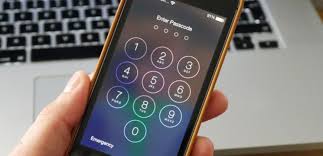
A national online poll conducted by Reuters found that nearly half of Americans support Apple Inc's decision to oppose a federal court order demanding that it unlock a smartphone used by San Bernardino shooter Rizwan Farook.
While 35 percent said they disagreed and 20 percent said they did not know, a majority of forty-six percent of respondents said they agreed with Apple's position, according to poll results released on Wednesday.
Even if it is done in the name of stopping terror attacks, a majority of Americans do not want the government to have access to their phone and Internet communications, showed another question in the poll.
The results of Wednesday’s poll are similar to results from a 2013 Reuters/Ipsos poll in response to the privacy questions. This displays a consistent desire on the part of Americans to keep their phone, Internet communications and other data private.
Most of those polled also feel that authorities would use to force the company to unlock more phones and that unlocking Farook's phone would set a dangerous precedent. Apple Chief Executive Tim Cook had made claims in an open letter to customers last week that the authorities would force the company to unlock more phones.
55 percent said they agreed when asked if the government would use the ability to unlock phones to "spy on iPhone users," 55 percent said they agreed while 28 percent disagreed and the rest said they were not sure.
“I don’t believe in giving up our right to privacy in order to make people feel safer,” said Steve Clevenger, a 55-year-old real-estate appraiser from Wheelersburg, Ohio, who took part in the poll and is supporting Apple.
Referring to a 2001 law that eased federal investigators' access to people's communications and financial records he said: “the government overstepped its bounds with the Patriot Act and they are likely to do it again.”
46 percent agreed, 42 percent disagreed and the rest said they were not sure when asked if the U.S. government should be able to look at data on Americans' phones to protect against terror threats.
There is no way to get at the data on Farook's phone without the company engineering a special software solution and that is the reason the government has said Apple must help.
Claiming it is an onerous request that puts the security of its customers at risk, Apple executives have refused the request.
“If a person has nothing to hide, there is no reason they should be afraid of the government looking at specific content with a warrant,” said Mike Kostrzewa, a 69-year-old retiree from Fairfax, Virginia, one of the poll's respondents.
Apple’s stand is more likely to be agreed upon by younger Americans than older Americans. 64 percent of the respondents between the age of 18 and 39 agreed with the company's decision to oppose the court order. That is nearly twice the percentage of older people who are supporting Apple.
Ipsos pollster Chris Jackson said that the poll results reflect a deep sense of skepticism among Americans about the security of their information.
(Source:www.reuters.com)
While 35 percent said they disagreed and 20 percent said they did not know, a majority of forty-six percent of respondents said they agreed with Apple's position, according to poll results released on Wednesday.
Even if it is done in the name of stopping terror attacks, a majority of Americans do not want the government to have access to their phone and Internet communications, showed another question in the poll.
The results of Wednesday’s poll are similar to results from a 2013 Reuters/Ipsos poll in response to the privacy questions. This displays a consistent desire on the part of Americans to keep their phone, Internet communications and other data private.
Most of those polled also feel that authorities would use to force the company to unlock more phones and that unlocking Farook's phone would set a dangerous precedent. Apple Chief Executive Tim Cook had made claims in an open letter to customers last week that the authorities would force the company to unlock more phones.
55 percent said they agreed when asked if the government would use the ability to unlock phones to "spy on iPhone users," 55 percent said they agreed while 28 percent disagreed and the rest said they were not sure.
“I don’t believe in giving up our right to privacy in order to make people feel safer,” said Steve Clevenger, a 55-year-old real-estate appraiser from Wheelersburg, Ohio, who took part in the poll and is supporting Apple.
Referring to a 2001 law that eased federal investigators' access to people's communications and financial records he said: “the government overstepped its bounds with the Patriot Act and they are likely to do it again.”
46 percent agreed, 42 percent disagreed and the rest said they were not sure when asked if the U.S. government should be able to look at data on Americans' phones to protect against terror threats.
There is no way to get at the data on Farook's phone without the company engineering a special software solution and that is the reason the government has said Apple must help.
Claiming it is an onerous request that puts the security of its customers at risk, Apple executives have refused the request.
“If a person has nothing to hide, there is no reason they should be afraid of the government looking at specific content with a warrant,” said Mike Kostrzewa, a 69-year-old retiree from Fairfax, Virginia, one of the poll's respondents.
Apple’s stand is more likely to be agreed upon by younger Americans than older Americans. 64 percent of the respondents between the age of 18 and 39 agreed with the company's decision to oppose the court order. That is nearly twice the percentage of older people who are supporting Apple.
Ipsos pollster Chris Jackson said that the poll results reflect a deep sense of skepticism among Americans about the security of their information.
(Source:www.reuters.com)





